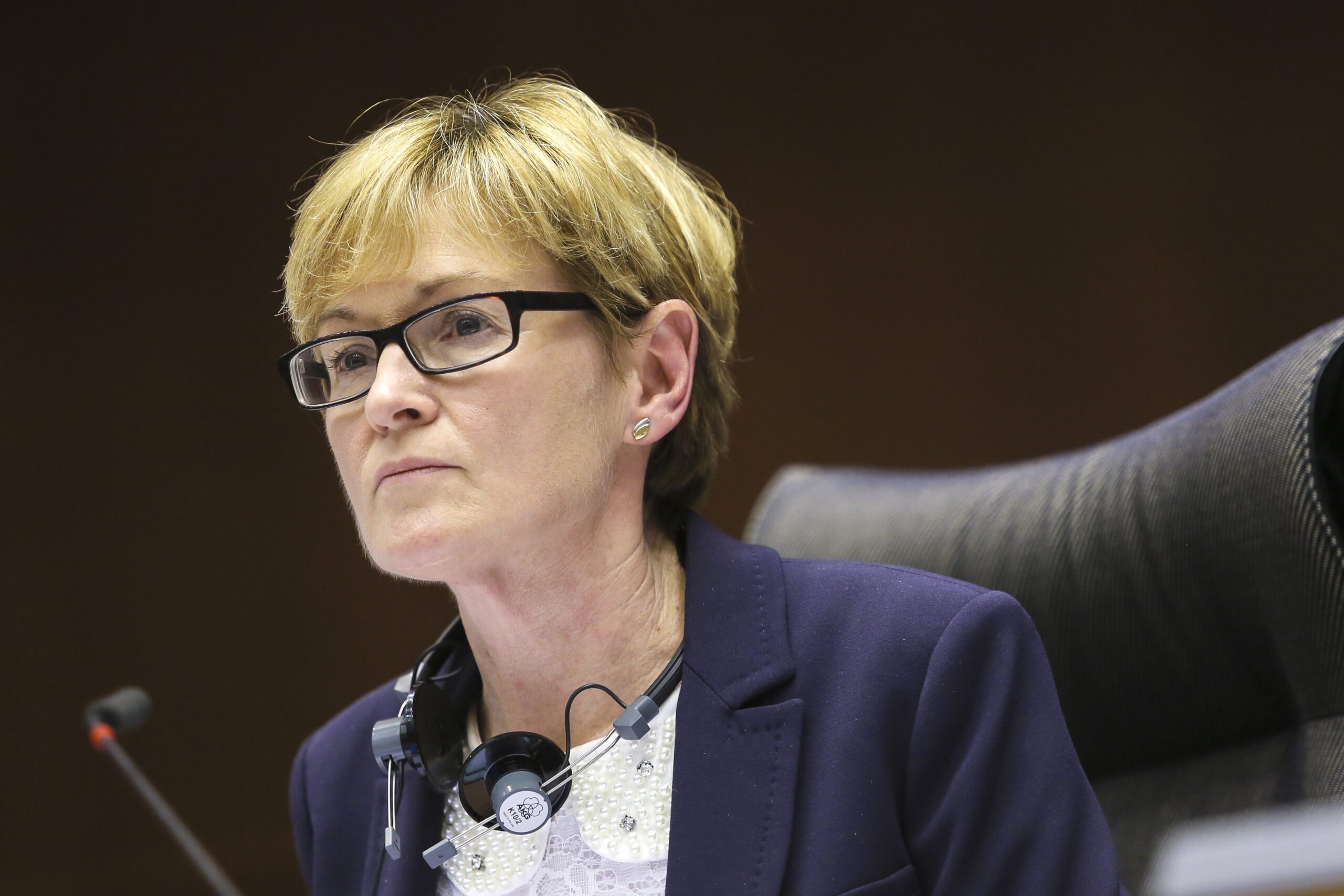We talk about sustainable food supply chains but it’s not sustainable to squash a producer, to keep pushing down the price, according to Fine Gael MEP Mairead McGuinness.
McGuinness, speaking to journalists in Brussels recently, said that she started working on the issue of retail power in 2005 and there wasn’t much traction on the issue.
“At the moment now we’ve reached a stage where everybody now agrees with the line that I’ve been taking, including the Commission, and we’ve Commissioner Hogan there now pushing it.
“Several countries have implemented their own rules, about 16 countries have legislation around the imbalance in power in the supply chain with a view to try and make sure that farmers aren’t walked on.
McGuinness said how she has written a report for the Agriculture Committee, which will be voted on in a few weeks on the issue.
“Incredibly, 28 people spoke on the debate in committee which was an incredible number to speak and they all supported the report because it was concise it just said that there is an issue on unfair trading practices.
“So if you produce something like milk or mushrooms or whatever it is, you’ve no other market outlet for it except this outlet that then decides it can get it cheaper somewhere else or that wants you to give them money to put your product on the shelf,” she said.
There’s a whole range of these unfair trading practices, but I would be confident of getting the support in the agriculture committee when we vote through the final report.
However, McGuinness pointed out that there are people in the European Parliament who are questioning legislating; that maybe the market should be allowed to decide for itself.
“It’s not a straight forward issue. I think consumers are disadvantaged by unfair trading practices because, if you force more and more people out of a particular sector or to produce only a few products then we have less choice.
“We talk about sustainable food supply chains, even with climate change and other environmental pressures; its not sustainable to squash a producer, to keep pushing down the price.
“We’re 28 countries, we’re supposed to have an internal market where everything is the same; at the moment it isn’t,” she said.

